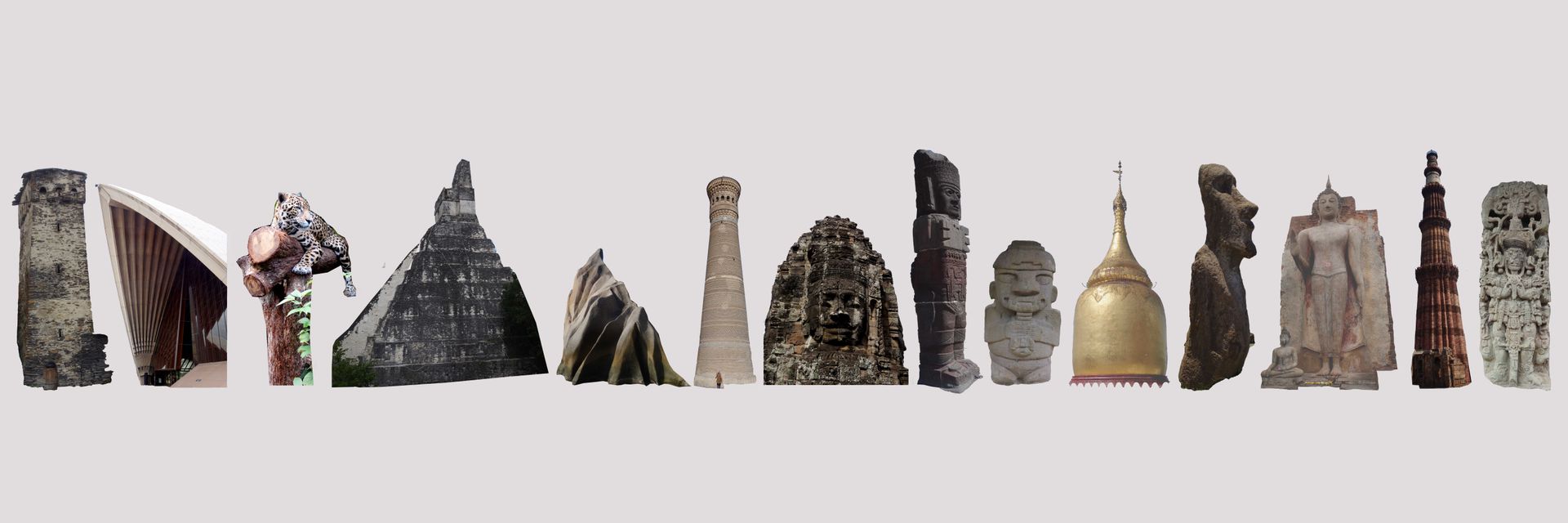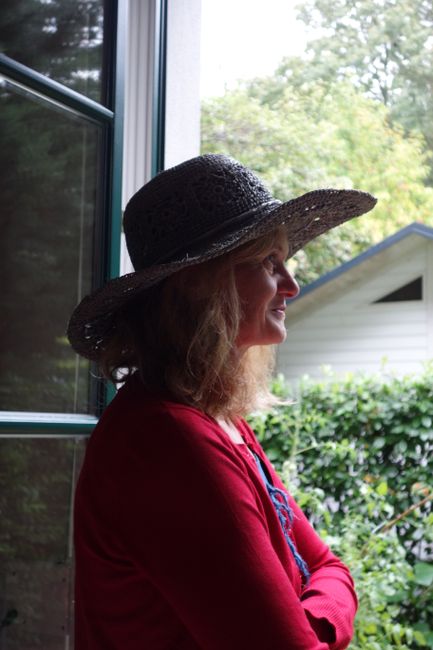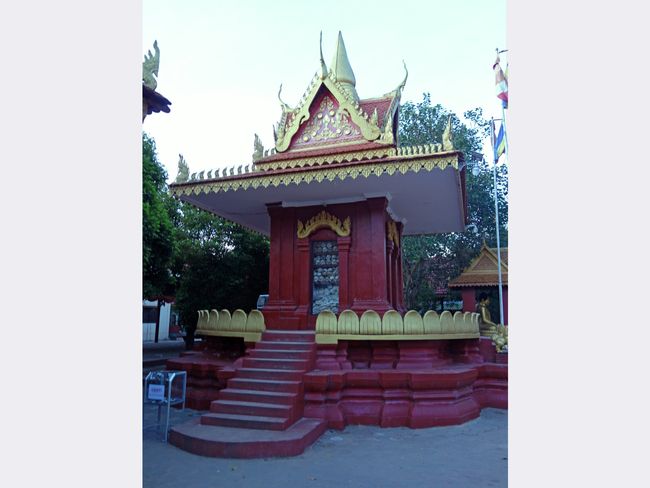Cambodia - here and (confused) gone
வெளியிடப்பட்டது: 06.12.2018
செய்திமடலுக்கு சந்தாதராகவும்
Just a short time after crossing the border between Thailand and Cambodia (actually on foot), I felt a certain level of confusion on the journey in the shared taxi to Siem Reap, which would stay with me for the entire duration of our stay.
I had already known that Cambodia is very poor. Of the countries we visit, only Myanmar is poorer (using the Human Development Index as a measure). So it was not surprising that the garbage collection in Cambodia does not work well and there are regular dumpsites along the roadside. But why were the private properties next to the wooden stilt houses (old or new) covered in garbage or with a thick ring of garbage along the fence? Why do people not pick up empty plastic bottles that are within reach next to them while they sit and eat under their houses?
In our homestay in Siem Reap, we spoke with a group of nice and very interested young people from Italy who had been to Phnom Penh before. They said that Phnom Penh is terrible. One of them said that he had the impression that the people here have no dignity - a very harsh judgment, but I understood what he meant.
We had a lot of time to chat with Sokbo, the young woman who manages our beautiful accommodation. She repeatedly complained about how difficult it was to find good staff. None of the women (all of whom come from poor backgrounds) had a real interest in their job. They didn't care whether they kept it or not. Sokbo, who is herself ambitious and intelligent, had no understanding for this attitude.
During our trip to Sambor Prei Kuk, we stayed with a Belgian expat who has been living in Cambodia for 15 years. He was clearly frustrated. He soon mentioned the ubiquitous garbage: when he suggested to his neighbors that they should dispose of the empty plastic bottles, they just laughed and said that the rain would eventually wash everything into the sea. He further complained that you have to pay bribes for everything, that his employees are defiant and have stolen from him several times. The additional money that people in the village now earn, as the 'World Heritage' status has brought more visitors, is spent on loud and alcohol-filled celebrations the same evening. It is no wonder, he said, that many people are very poorly educated: his Cambodian partner, for example, cannot read or write because the Khmer Rouge were in power during her childhood.
I already mentioned that everything is disproportionately expensive in Siem Reap. Unlike all the other countries we have visited in recent months, tourists are clearly and intentionally being taken advantage of here. It is very ok for me to pay more entrance fees than the locals and contribute to the maintenance of the attractions, but why do I have to pay more for using a toilet without a flush and toilet paper? Because it's not expensive for me anyway, as a woman told me who wanted an absurdly high price for a handful of bananas? There is no culture of hospitality in the country, that's Sokbo's explanation, unlike in Myanmar for example. When I added that the events of recent history could play a role in that, she said: Yes, we have suffered so much.
That's not entirely true about hospitality: Sokbo and her family warmly welcomed us during the 14 days we spent with them. By the end, their seven-year-old daughter already considered Roby as an 'uncle', and we were included in two parties with friends without any complications. But even there, there was something disturbing: the unexpectedly intense consumption of alcohol, especially by the men (all of whom belong to the upper middle class), which accompanied the feasts. I've never seen a bottle of Single Malt emptied so quickly - and it didn't stop at just one bottle.
On April 17, 1975, the Khmer Rouge marched into Phnom Penh. Within three days, they completely evacuated the 2-million city and left it (just like the other cities in the country) deserted during the four years they terrorized the country. Only a few administrative offices were operational in Phnom Penh - and the S21 torture prison, a former school where more than 17,000 people were often tortured over days and weeks and ultimately killed. The entire city population was declared enemies of the regime and forced to work in rice fields using primitive methods.
All educated individuals, intellectuals (easily recognizable by their glasses), civil servants, and skilled workers were gradually killed. Modern knowledge was systematically denied, and the murdered doctors, for example, were replaced by 'trained' practitioners. Medications like penicillin were banned, which meant that a cut in the leg often came close to a death sentence due to the hygienic conditions. The 'enemies' within the population were systematically humiliated. Their humanity was simply denied, which was ultimately manifested in them being starved - even though increasing rice production was one of the main goals of the Khmer Rouge. When the reign of terror ended in 1979 with the invasion of Vietnam, it had killed one-third of the country's population (almost 2 million people) - most of the victims had died of starvation. But the Khmer Rouge continued to fight: in a bloody civil war that lasted until 1991 and did not allow the country and its people to find peace.
'Extermination' is the title of a book by Rithy Panh, who experienced the four dreadful years as a teenager and has dedicated his professional life as a documentary filmmaker to this time. The countless details of the terror that Rithy Panh describes are absolutely disturbing and suggest that many of my irritations have their roots in this time when people were completely deprived of their dignity and belongings. Especially since the events have not really been processed. Sokbo, for example, knows that the time of the Khmer Rouge still has an impact today, but she doesn't want to deal with it.
செய்திமடலுக்கு சந்தாதராகவும்
பதில்


